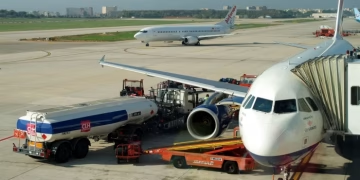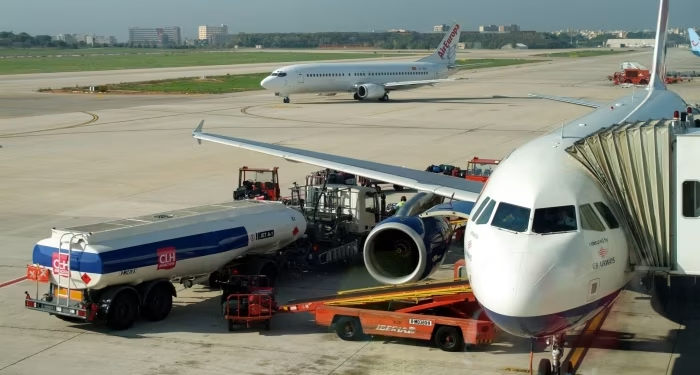By Maria Kalamatas | July 23, 2025
Section: International / Aviation & Market Outlook
Paris, July 23 — European airlines are preparing for tighter margins and potential fare increases as jet fuel prices rise sharply, threatening profitability during the busiest travel period of the year.
“Fuel now accounts for nearly 40 percent of our operating costs on long-haul routes,” said Jean-Luc Martel, chief financial officer at a leading French airline group. “We’re absorbing what we can, but if prices hold at these levels, passing some of the burden to customers may be inevitable.”
Costs squeeze carriers across the board
Jet fuel benchmarks in Europe have surged nearly 10 percent since early July, driven by reduced refinery output and a rise in crude oil prices. The increase is affecting both low-cost carriers and traditional network airlines, particularly those without strong hedging strategies.
“For airlines without significant fuel protection, the impact is immediate,” Martel explained. “Balancing profitability while keeping ticket prices competitive is becoming increasingly difficult.”
Pressure on air cargo
The rise in fuel costs is also affecting air cargo operations. Freight forwarders report that carriers are raising surcharges, prompting some shippers to explore slower but cheaper alternatives, including combined sea-air solutions.
“Every upward move in fuel translates into higher logistics bills,” said Marta Gómez, a Madrid-based logistics analyst. “For cargo with narrow profit margins, air transport is becoming harder to justify.”
Airlines accelerate efficiency plans
Carriers are cutting costs wherever possible, including reducing less profitable routes, optimizing flight paths, and deploying newer, more fuel-efficient aircraft to offset the pressure.
“These adjustments don’t solve the problem entirely, but they help us stay competitive,” Martel noted.
What lies ahead
Analysts believe volatility will persist through August and could lead to targeted fare adjustments on transcontinental routes. Despite rising costs, most airlines plan to maintain their core schedules to protect market share.
“We’ll manage the risk without scaling back our reach,” Martel said. “But the financial strain on the sector is clear and growing.”























